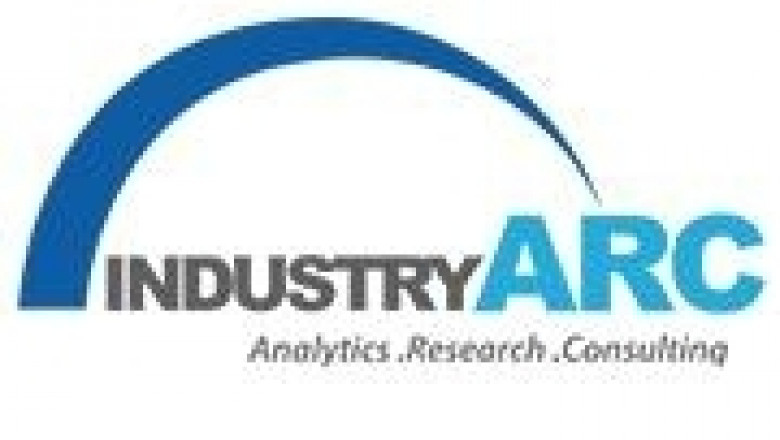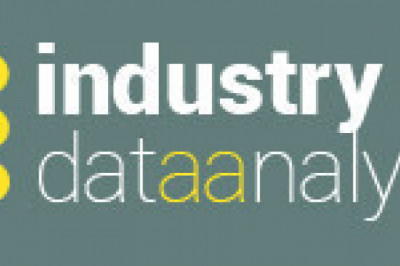Gas separation membranes market size is forecast to reach $1,407.9 million by 2025, after growing at a CAGR of 6.8% during 2020-2025. The growing demand for biogas in the emerging countries and cost-effectiveness of membrane separation are the factors fueling the growth of the market. In addition, low capital costs, long lifespans and low energy consumption requirements as compared to other gas separation techniques are also one of the factors driving gas separation membrane market growth. Furthermore, the growing environmental concerns have led the manufacturers to use gas separation membranes in order to reduce the emissions of harmful gases directly into the atmosphere which is further contributing to the market growth. For instance, China’s 2030 Paris Agreement Nationally Determined Contribution (NDC), which aims to reduce greenhouse gas emissions along with supporting the use of bio-methane in transport sector is likely to aid the growth of market.
Report Coverage
The report: “Gas Separation Membranes Market– Forecast (2020-2025)”, by IndustryARC, covers an in-depth analysis of the following segments of the Gas Separation Membrane Industry.
By Material: Polyimide & Polyaramide, Polysulfone, Cellulose Acetate and others.
By Application: Nitrogen Generation & Oxygen Enrichment (Packaging, Metal Manufacturing And Fabrication, Electronics, Oil & Gas Mining, Industrial Oxygen, and others), Hydrogen Recovery (Hydrogen Purification in Refinery, Syngas Process, Hydrogen Recovery From Purge Gas), Carbon Dioxide Removal (Natural Gas, Biogas, Vapor/Gas Separation, Vapor/Vapor Separation, Air Dehydration).
By Geography: North America, South America, Europe, APAC, and RoW.
Key Takeaways
- Growing demand for carbon dioxide removal from reservoirs, increasing urbanization, rising demand for sanitation and freshwater, and improving standard of living in Asia-Pacific, especially in China is responsible for the massive growth of the gas separation membranes market in Asia-Pacific region.
- According to the Interstate Natural Gas Association of America, in U.S and Canada, a total $791 billion investments in new oil and gas infrastructure will be made from 2018 to 2035. This will further influence gas separation membranes market growth.
- However, operations in various industries such as oil & gas, chemical and others is being significantly affected due to the COVID-19 epidemic, as most of countries have issued “stay at home guidance” i.e., lockdown. And it is expected that the outbreak of COVID-19 will be seen in the whole year of 2020, and a few months in 2021. This is limiting Gas Separation Membranes Market growth.
-
Gas separation Membranes Market Segment Analysis - By Material
Polyimide & polyaramide held the largest share in the gas separation membranes market in 2019, owing to its superior selectivity & permeability, high chemical & thermal stability, mechanical strength, and good film forming properties. Polyimide and polyaramide owing to the extraordinary physical and chemical properties, is considered as a significant, well-established, and commercialized class of polymers. It has been widely used as membrane manufacturing materials for gas separation, in particular for upgrading natural gas and extracting acidic CO2 from industrial off-gases. Due to benefits such as easy fraction and low production cost, it is preferred widely in CO2 recovery during oil recovery, oxygen and nitrogen separation from air, and natural gas sweetening.
Gas separation Membranes Market Segment Analysis - By Application
Nitrogen Generation & Oxygen Enrichment held the largest share in the global gas separation membranes market in 2019 and is growing at a CAGR of 6.83% during the forecast period, owning to growing need for efficient, reliable, and cost-effective systems for nitrogen generation & oxygen enrichment. Nitrogen and oxygen are some of the key industrial gases, which are highly used in several industries such as oil & gas, mining, electronics, and others. As compared to other technologies membrane systems are easy to install, require minimum supervision, occupy less space, and do not have moving parts, thus it needs almost no maintenance and is ecofriendly as it does not emit gases nor work with solvents. The membrane technology can efficiently produce Nitrogen at purities of 95 – 99%. Therefore, owning to these factors gas separation membranes are highly preferred over other technologies for Nitrogen Generation & Oxygen Enrichment. According to the International Monetary Fund, by 2023, oil demand will reach 104.7 mb/d, up by 6.9 mb/d from 2017. This will create the need to develop more oil and gas plants. Thus, increasing nitrogen and oxygen demand which in turn drives gas separation membranes market growth.
Gas separation Membranes Market Segment Analysis - By Geography
Asia Pacific held the largest share in the gas separation membranes market in 2019 up to 35%. According to the International Association of Oil & Gas Producers, Asia Pacific is the world's biggest oil consumer. In 2018, Asia Pacific produced 7.6 million barrels of oil per day, i.e., 8% of the world’s total. In addition, according to BP statistics, Asia Pacific natural gas consumption increased to 825.3 million tonnes oil equivalent in 2018, i.e., 7.4% higher than the previous year. Therefore, increasing oil & gas consumption in the region led Asia Pacific to dominate the global Gas Separation Membranes Market share in 2019. Furthermore, Government regulations such as Air (Prevention and Control of Pollution) Act to reduce the emission of greenhouse gases from manufacturing industries is likely to boost the growth of gas separation membranes market in India. In addition, government policies such as Green Growth and foreign investments to establish the biogas market in South Korea in order to recover energy from organic waste is also escalating the use of gas separation membranes for methane segregation. For instance, in August 2019, an Austrian firm “Biogest” opened a biogas plant in South Korea which further boosts the market. Therefore, these factors are influencing gas separation membranes market growth in the region.
Gas Separation Membranes Market Drivers
Increasing demand for biogas
Biogas is the byproduct in the manufacture of biodiesel and ethanol formed by the anaerobic digestion of energy crops and organic residues. Methane produced by the rotting of crops and organic residues can either be burnt as gas or converted into electricity. Biogas can be effectively used as a versatile energy carrier and can fulfill the rising requirement for power, heating, and fuel. Extractions from biomass include gases such as methane, CO2, and traces of hydrogen sulfide, ammonia, hydrogen, nitrogen, carbon monoxide, and oxygen biogas. Increasing awareness about the precarious effect of Greenhouse Gas (GHG) emissions into the environment is supposed to help in the growing installation of biomass producing plants around the world. The production of biofuel aids in eliminating the problem of dumpsites and landfills, which is expected to provide an optimistic impact on the demand for biogas. Because of its benefits, the coming years will witness an increase in the demand for biogas, which in turn, will drive the adoption of gas separation membrane technology to separate various gases from biogas.
Gas Separation Membranes Market Challenges
Commercializing and upscaling new membranes
Most of the gas separation membranes developed by researchers are tested only in laboratories. Upscaling of new membranes technology will ensure durability and reliability. Upscaling also ensures the safe designing and operation of the membrane in real operating conditions through stress analysis in the field. However, testing the new membranes in the pilot plant and analyzing their performance is highly time-consuming and involves high installation cost. Therefore, most of the membranes developed in recent years are yet to be tested under real-time conditions, thus delaying their commercialization. The high cost and time consumption involved with commercializing and upscaling new products is a major challenge for the in the gas separation membranes market.
Market Landscape
Technology launches, acquisitions and R&D activities are key strategies adopted by players in the gas separation membranes Market. In 2019, the market of Gas Separation Membranes Market has been consolidated by the top five players accounting for 28% of the share. Major players in the Gas Separation Membranes Market are UBE Industries Ltd, Air Liquide Advanced Separations LLC, Air Products and Chemicals Inc., Parker-Hannifin Corporation, Schlumberger Ltd, Evonik Industries AG., Atlas Copco AB, Honeywell Uop LLC., Fujifilm Manufacturing Europe B.V among others.
Acquisitions/Technology Launches
- In February 2019, Air Liquide invested in Proton-Exchange membrane based electrolyzer in the world with a 20 megawatts (MW) capacity for the production of carbon-free hydrogen. The investment allows the company to reaffirm its long-term commitment to the hydrogen energy markets and its ambition to be a major player in the supply of carbon-free hydrogen.
- In February 2019, Atlas Copco AB launched three compact, low-cost, low-flow membrane nitrogen generators. The product launch will strengthen the company’s product portfolio.
- In February 2016, Air Products and Chemicals Inc. launched PRISM Pro-Line Nitrogen Generator GEN1 for its high-specification equipment portfolio. The Pro-Line system is designed to meet the exacting standards of the marine, offshore, and oil and gas industries at a lower price and with a shorter delivery than typical engineered-to-order equipment.
For more Chemicals and Materials related reports, please click here













